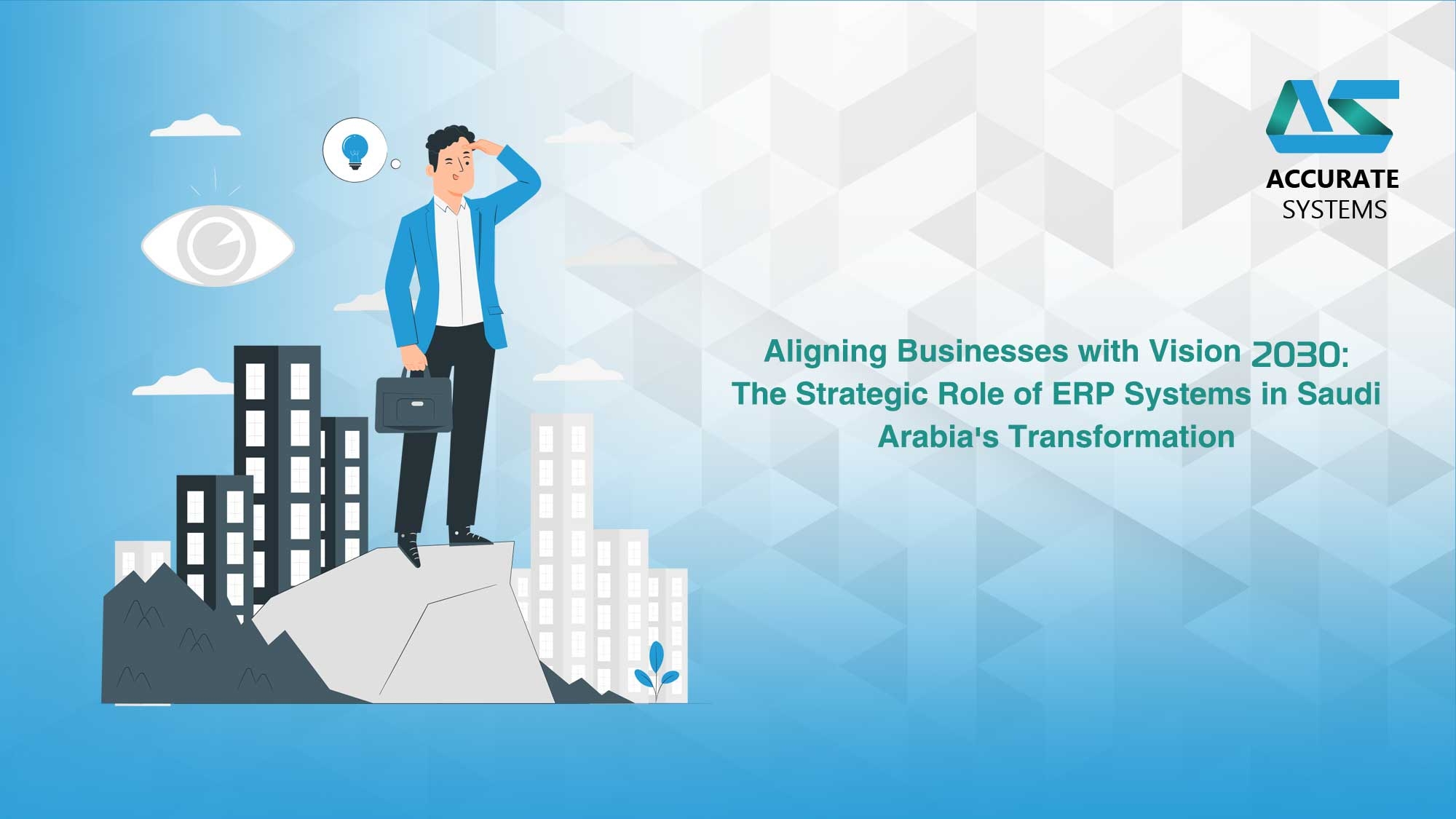Saudi Arabia’s Vision 2030 is a comprehensive plan designed to transform the kingdom’s economy and society. It aims to diversify the economy, reduce oil dependency, and foster innovation-driven sectors. As companies in Saudi Arabia work to align with these goals, Enterprise Resource Planning (ERP) systems are emerging as a crucial solution to drive this transformation forward.
What Are ERP Systems?
ERP systems are integrated software platforms that streamline business operations by automating processes, managing resources, and providing real-time data insights. These systems offer a unified view of all business functions, including finance, supply chain management, human resources, and customer relationship management. By enhancing efficiency and offering actionable insights, ERP systems help organizations optimize their operations.
How ERP Systems Support Vision 2030
Aligning businesses with Saudi Arabia’s Vision 2030 requires innovation, efficiency, and governance. ERP systems play a pivotal role in achieving these objectives across several critical areas:
1. Economic Diversification
- Efficiency and Cost Optimization: ERP systems automate business processes, significantly reducing operational costs and improving productivity. This optimization allows businesses to allocate resources effectively, contributing to economic diversification.
- Data-Driven Decision Making: With real-time insights from ERP systems, companies can make informed decisions, seize new market opportunities, and invest in emerging sectors such as technology and renewable energy.
2. Innovation and Entrepreneurship
- Scalability: ERP systems are designed to scale as businesses grow. This scalability is particularly valuable for startups and growing enterprises in Saudi Arabia, providing the technological infrastructure to support rapid expansion.
- Enhanced Collaboration: ERP platforms foster collaboration across departments, breaking down silos and encouraging knowledge sharing. This collaborative environment is key to fostering innovation and entrepreneurial growth in line with Vision 2030.
3. Governance and Transparency
- Regulatory Compliance: In a country with evolving regulatory frameworks, ERP systems ensure compliance with laws and standards, promoting transparency and accountability in business operations.
- Risk Mitigation: By providing a centralized view of business activities, ERP systems help companies identify risks early and implement measures to prevent financial losses.
4. Talent Development
- HR Management: ERP systems streamline HR functions, from recruitment to employee development. This functionality helps businesses attract, train, and retain top talent, which is essential for meeting Vision 2030’s objectives.
- Skill Development: With insights into employee performance, ERP systems enable businesses to implement targeted training programs, ensuring their workforce is skilled for future challenges.
Key Benefits of ERP Systems in Supporting Vision 2030
By implementing ERP systems, businesses can better align with Vision 2030’s strategic goals. Key benefits include:
- Increased Operational Efficiency: Automation frees employees from repetitive tasks, allowing them to focus on strategic initiatives that contribute to growth.
- Improved Decision-Making: With access to real-time analytics, business leaders can make more informed decisions, driving business performance and innovation.
- Enhanced Productivity: Streamlined processes and better communication among teams lead to increased productivity and faster project execution.
- Cost Savings: By optimizing resource use and eliminating redundancies, ERP systems help companies reduce operational costs.
- Better Customer Satisfaction: With improved inventory management and faster order fulfillment, businesses can provide superior customer service, driving loyalty and long-term growth.
Challenges and Considerations in ERP Implementation
While ERP systems offer significant benefits, businesses must consider several challenges when implementing these platforms:
- Implementation Complexity: ERP deployment can be a time-consuming and complex process. It requires careful planning, integration with existing systems, and a clear understanding of business goals.
- Initial Costs: The upfront investment in an ERP system can be substantial. However, the long-term savings and increased efficiency often justify the initial expense.
- Customization Needs: Depending on the industry and specific business needs, ERP systems may require customization, which can add to both costs and complexity.
Conclusion: ERP Systems as a Catalyst for Vision 2030 Success
As Saudi Arabia continues its journey toward a diversified, knowledge-based economy, ERP systems will be vital tools for businesses striving to align with Vision 2030. By driving operational efficiency, fostering innovation, and promoting governance, ERP systems can help organizations contribute to the nation’s economic transformation. Companies that adopt these systems will be better equipped to thrive in Saudi Arabia’s evolving economic landscape and to support the broader objectives of Vision 2030.

